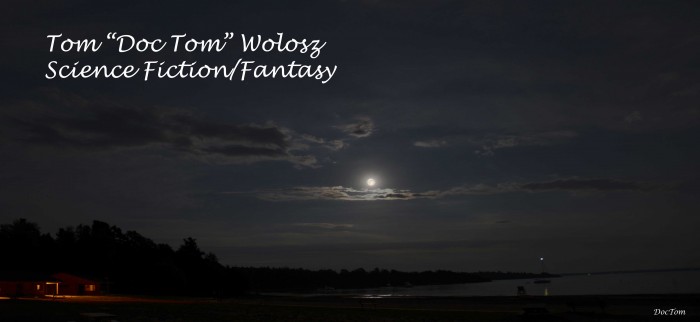A number of years ago there was an, unfortunately, short-lived scifi magazine titled “Aboriginal Science Fiction.” It published short stories, movie reviews and book reviews. The one thing I will always remember was the way one of its book reviewers began one of his columns. He was responding to the question, “Why don’t you ever review the newest Star Trek novel?” His answer came down to this: if he picked up a book in a bookstore, and from its cover and synopsis gathered that the plot was something he had read a thousand times before in other books, he put it down and moved on. He wanted something new.
Now don’t get me wrong, we all have our likes, and when most people really like something they enjoy reading it over and over. This is the reason we get movie sequels which are generally the same plot slightly rehashed in a slightly different setting – we enjoy visiting the same place over and over.
The most extreme version of this in writing is fan fiction. Take characters established in other books or in film and write your own stories about them. If you’re a good writer you can probably get some folks to read your work, but is this really what you want to do? What about those, like the reviewer in Aboriginal, who look for something different? How do you reach them? The answer is simple – try to be as original as possible.
This doesn’t mean you can’t write that sword and sorcery novel you’ve dreamed of, but if you find yourself populating the world with orcs and trolls and elves and dark riders you’re not really trying very hard. Can’t you call them something else? Because if you do then you need to explain, at least to yourself, what they are, and every little new twist you come up with makes the story more your own creation. It also can make it more enjoyable to every reader looking for something a bit different. How about making the deformed magical creatures (e.g., the orcs) the good guys? That would be different, and would take work, but you might end up with an interesting and original story.
Sometimes you can take a well used idea, look at it from a different angle and find a gold mine. The late Sir Terry Pratchett took sword and sorcery, played it for laughs with his Discworld series, and became world famous with a following of millions.
The trick is always to ask “What if?” When I say that I don’t mean what if the Cylons hadn’t rebelled in “Battlestar Galactica,” although that might be an interesting premise. I mean what if there were no nuclear weapons? What if mankind had discovered immortality in 1958? What if scientists discovered that “dark matter” was the source of magic in the universe and we learned how to control it? What if? What if? What if?
As a writer it’s your job to answer the “what if?” with a vision. Get into a game of “What if?” with some friends, it’s a blast!
Then sit down and write about it.
